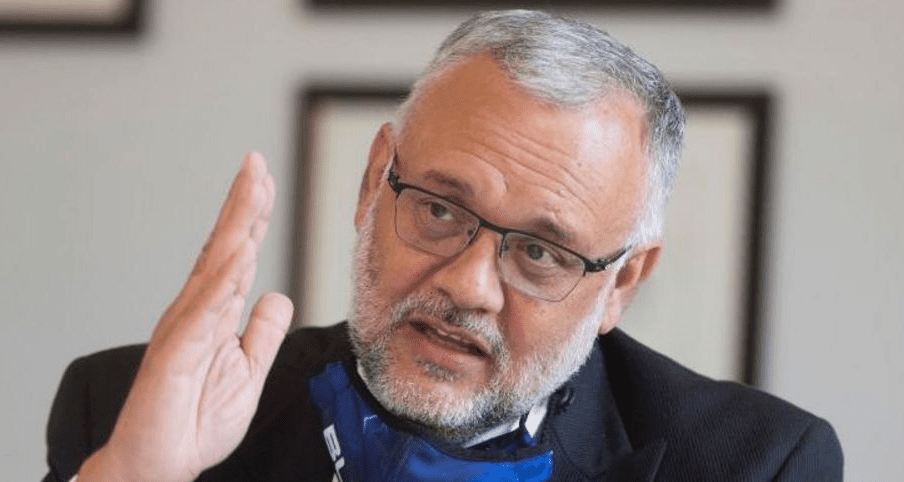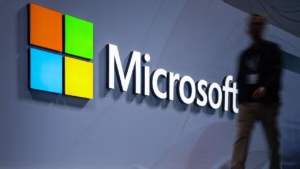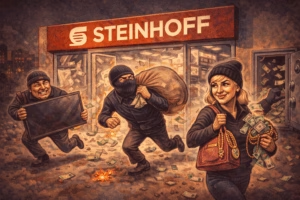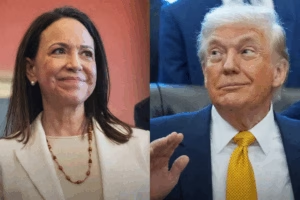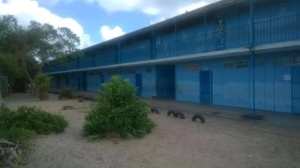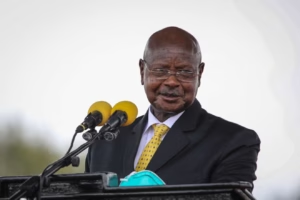The world has entered a new and potentially volatile era of resource competition, defined not by oil but by critical minerals essential to modern technological progress. This was the stark warning issued by Ebrahim Rasool, former South African ambassador to the United States, during a recent address in Cape Town. His remarks have reignited debate amid growing concerns about global instability.
South Africa’s Former Diplomat Issues Stark Warning on Geopolitical Rivalries
Addressing attendees at the Masjidul Quds Institute during a Jumu’ah lecture, Rasool outlined how nations are increasingly locked in fierce competition over minerals vital to technological supremacy.
“Let me give you an example, some statistics, the United States has identified 50 critical minerals for its immediate future if it is going to remain the leader and not cede leadership to China in the tech revolution,”
Rasool stated, underscoring America’s heavy reliance on foreign sources.
He highlighted that the situation is far from stable.
“Of the 50, they are 100% dependent on other countries for 12 of those 50. They are more than 50% dependent on 29 of those 50 minerals. And they are dependent on China for 13 of those. And China has captured 90% of the processing market for all of that.”
Rasool argued that this dependency had sparked a shift in United States foreign policy, driven increasingly by military and economic imperatives.
“It’s not that Donald Trump is suddenly waking up and saying, I hate Chinese because of this, that, and the other. It is because the tech robber barons have told him – You’ve got to go to war.”
Africa’s Strategic Importance in the Mineral Race
The continent’s role in this unfolding saga is not passive. Rasool connected South Africa’s military involvement in the Democratic Republic of Congo (DRC) to the broader effort to protect Africa’s mineral riches.
“South Africa showed when it lost 18 soldiers in the Eastern DRC, defending the critical minerals of the DRC, it showed its willingness to protect Africa, because Africa has 30% of the critical minerals of the world.”
South Africa’s own mineral wealth, particularly in platinum, was also emphasised.
“South Africa itself has 70% of the platinum critical minerals,”
Rasool noted.
“No new car can be driven without platinum, because platinum is the core ingredient of catalytic converters.”
He characterised this global phenomenon as the dawn of a new era of competition.
“This is not the scramble for oil,”
he cautioned.
“This is the scramble for critical minerals.”
Global Flashpoints: Arctic, Canada and Control of Trade Routes
The competition extends well beyond Africa, according to Rasool. He argued that US interests in Arctic access, Greenland, and global shipping routes are all connected to securing these precious resources.
“The whole issue of Canada – Canada has 30% of the world’s critical minerals,”
he said.
“It’s not a joke about the 51st state. It’s to beat them into submission.”
He also addressed America’s approach to global trade routes.
“The Panama Canal, bombing the Houthis to make sure the Suez Canal always stays open so that it flows, the critical minerals flow through.”
He suggested these strategic interventions were not accidental.
“The US wants to ensure the Panama Canal never gets into hostile hands because the critical minerals have to flow.”
Encouraging deeper scrutiny of international developments, Rasool remarked:
“My respected brothers and sisters, if we want to understand this changing, ominous global landscape, then be amused by the apparent madness, but look for the method in the madness.”
Diplomatic Fallout Following Rasool’s Expulsion
Rasool’s outspoken views have not gone unnoticed in diplomatic circles. In March 2025, he was expelled from the United States after accusing President Donald Trump of supporting white supremacy both domestically and abroad. He also drew attention to Vice President JD Vance and entrepreneur Elon Musk’s ties to far-right movements.
The response from Washington was swift and unambiguous. United States Secretary of State Marco Rubio labelled Rasool:
“Race-baiting politician who hates America.”
The South African envoy was stripped of his diplomatic privileges and ordered to leave within 72 hours, further worsening relations between the two nations. Disputes over South Africa’s land reform programme and its genocide case against Israel at the International Court of Justice had already strained ties.
Upon returning to Cape Town, Rasool remained resolute.
“I have no regrets,”
he declared.
“This is a badge of dignity.”
Pretoria Appoints New Envoy Amidst Diplomatic Tensions
Seeking to navigate the turbulent waters of diplomacy, President Cyril Ramaphosa announced Mcebisi Jonas as South Africa’s new Special Envoy to the United States. According to the Presidency:
“He is entrusted with the responsibility to advance South Africa’s diplomatic, trade and bilateral priorities.”
Jonas, a former Deputy Minister of Finance, steps into the role during a critical window for South Africa. The nation has been afforded three months to negotiate more favourable trade terms, following the imposition of 30 percent tariffs by the Trump administration.
A statement from the Presidency expressed confidence in Jonas’s ability to strengthen South Africa’s global standing:
“This appointment underscores his distinguished career and continued commitment to advancing South Africa’s national and economic interests.”
As nations jostle for control of vital minerals, the stakes could not be higher. How countries respond to this evolving challenge will shape the international landscape for years to come.
First reported on by Indepedent Media

